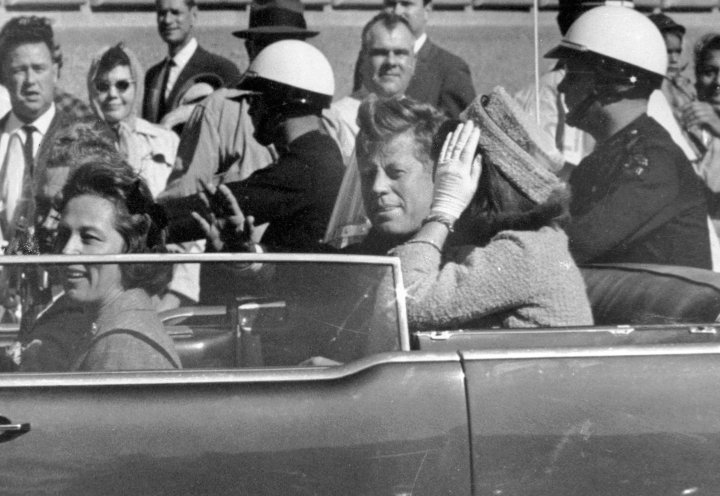US releases thousands of secret John F. Kennedy assassination files
Fri 27 Oct 2017, 15:44:59

US President Donald Trump has approved the release of nearly 3,000 secret files related to the assassination of former US president John F Kennedy but withheld a few "sensitive" records to protect military and intelligence operations.
In a statement, the National Archives said that on orders from Trump it had released 2,891 records related to the assassination of Kennedy in Dallas on 22 November, 1963. The assassination shocked the nation and spawned a conspiracy industry that continues to pump out alternative theories about who was really behind the killing. However, at the request of security agencies, Trump agreed withhold some files. He ordered that they be reviewed in the next 180 days. "This temporary withholding from full public disclosure is necessary to protect against harm to the military defence, intelligence operations, law enforcement, or the conduct of foreign relations that is of such gravity that it outweighs the public interest in immediate disclosure," Trump said in a statement.
The American public expects -- and deserves -- its government to provide as much access as possible to President John F Kennedy Assassination Records (records) so that the people may finally be fully informed about all aspects of
this pivotal event, Trump argued. "The President has demanded unprecedented transparency from the agencies and directed them to minimise redactions without delay," White House Press Secretary Sarah Sanders said. The National Archives will therefore release more records, with redactions only in the rarest of circumstances, by the deadline of 26 April, 2018, she said. Early this year on July 24, the National Archives had released 3,810 related records, including 441 records previously withheld in their entirety and 3,369 records previously withheld in part.
this pivotal event, Trump argued. "The President has demanded unprecedented transparency from the agencies and directed them to minimise redactions without delay," White House Press Secretary Sarah Sanders said. The National Archives will therefore release more records, with redactions only in the rarest of circumstances, by the deadline of 26 April, 2018, she said. Early this year on July 24, the National Archives had released 3,810 related records, including 441 records previously withheld in their entirety and 3,369 records previously withheld in part.
According to a senior administration official, Trump was not happy that he had to withhold quite a number of files. According to the National Archives, the final batch includes information on the Central Intelligence Agency's station in Mexico City, where assassin Lee Harvey Oswald showed up weeks before Kennedy's death. There are also documents mentioning James Jesus Angleton, the agency's counterintelligence chief, at the time who took over the CIA's post-assassination investigation. One of his communications with the CIA director is dated 23 November, 1963, a day after the assassination and is described as about "assassination of President Kennedy", Politico reported.
No Comments For This Post, Be first to write a Comment.
Most viewed from International
Most viewed from World
AIMIM News
Latest Urdu News
Most Viewed
May 26, 2020
Do you think Canada-India relations will improve under New PM Mark Carney?
Latest Videos View All
Like Us
Home
About Us
Advertise With Us
All Polls
Epaper Archives
Privacy Policy
Contact Us
Download Etemaad App
© 2025 Etemaad Daily News, All Rights Reserved.



.jpg)






.jpg)
.jpg)








.jpg)
.jpg)
.jpg)
.jpg)
.jpg)

















